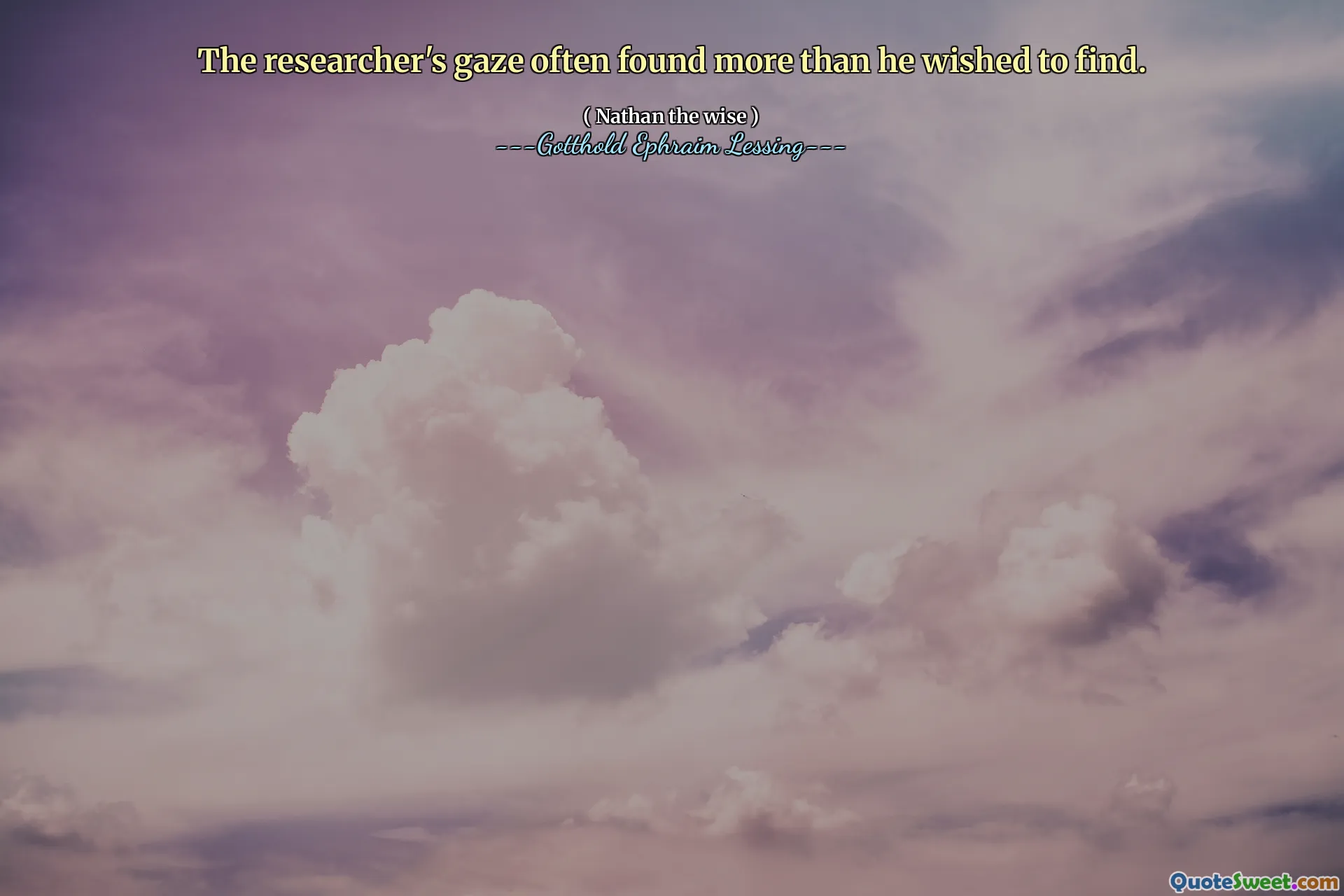
The researcher's gaze often found more than he wished to find.
This quote from Gotthold Ephraim Lessing's 'Nathan the Wise' encapsulates a profound insight into the nature of inquiry and discovery. It suggests that when one embarks on a quest for knowledge or understanding, the findings may exceed one's expectations or desires, sometimes revealing uncomfortable or unforeseen truths. This reflects the inherent unpredictability of research and exploration; the pursuit of knowledge is not merely about reaching preconceived ideas but being open to what reality unveils, even if it is unsettling.
In a broader sense, this quote touches on human curiosity and the risks tied to it. The 'gaze' of the researcher symbolizes focused attention and intent, yet the outcomes depend on what truly exists in the observed phenomena. This can lead to revolutionary insights or uncomfortable realizations that challenge existing beliefs, societal norms, or personal biases. Accepting more than one wished to find requires intellectual humility and courage — qualities essential for genuine progress.
Moreover, this idea resonates beyond scientific or philosophical research, extending into everyday life and personal growth. When we look deeply into ourselves or our circumstances, we may uncover more about motivations, fears, or realities that are difficult to process. Nonetheless, embracing these revelations is crucial for authentic development.
Lessing's work often dwells on enlightenment ideals such as tolerance, reason, and empathy, and this quote reaffirms those themes by highlighting the importance of confronting truth, regardless of discomfort. It acknowledges that discovery is not always comfortable, but it is necessary for wisdom and understanding.






